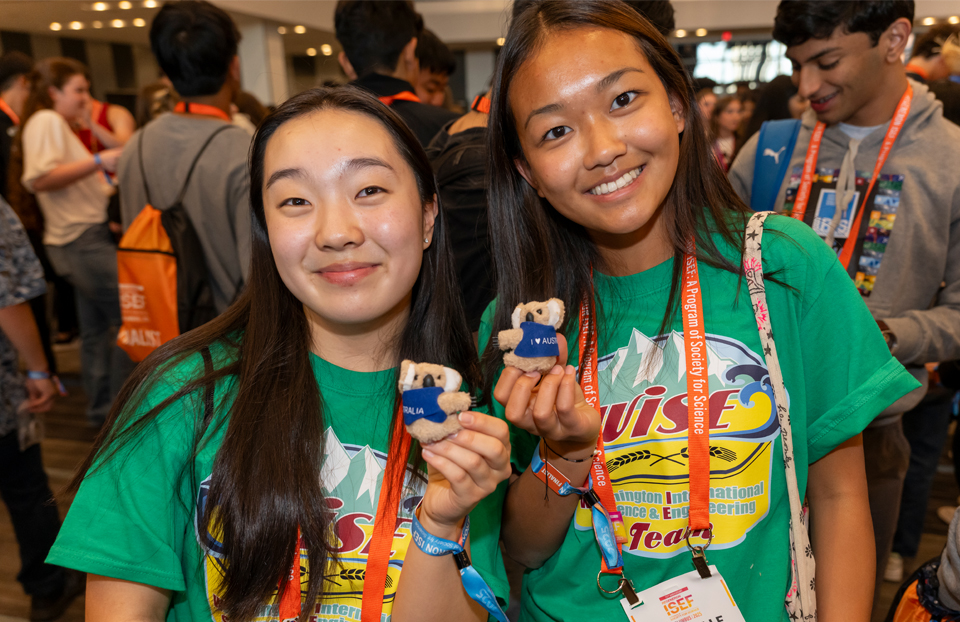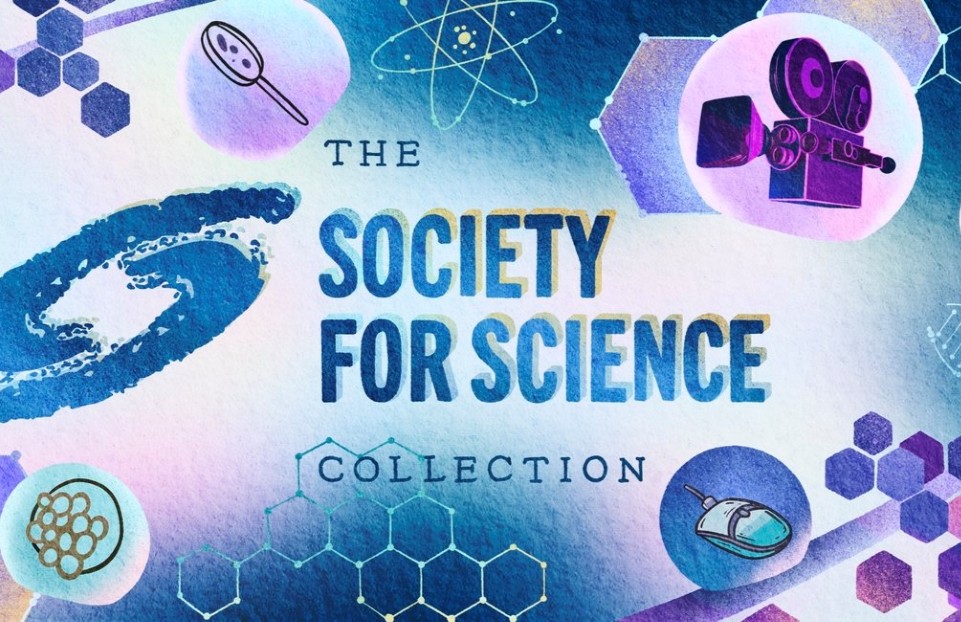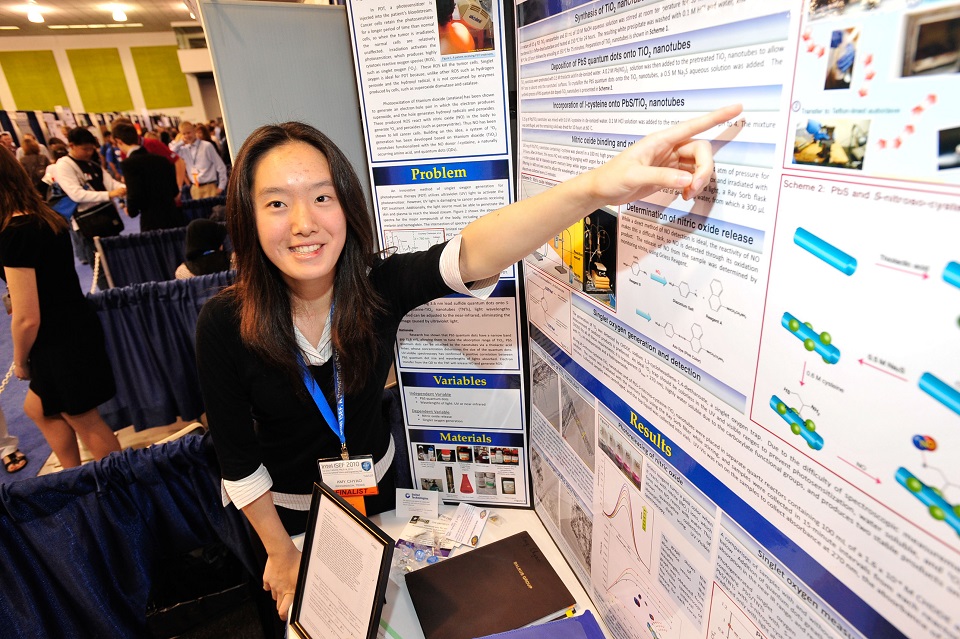Five questions with ISEF 2019 Best of Category in Embedded Systems winner, Max von Wolff
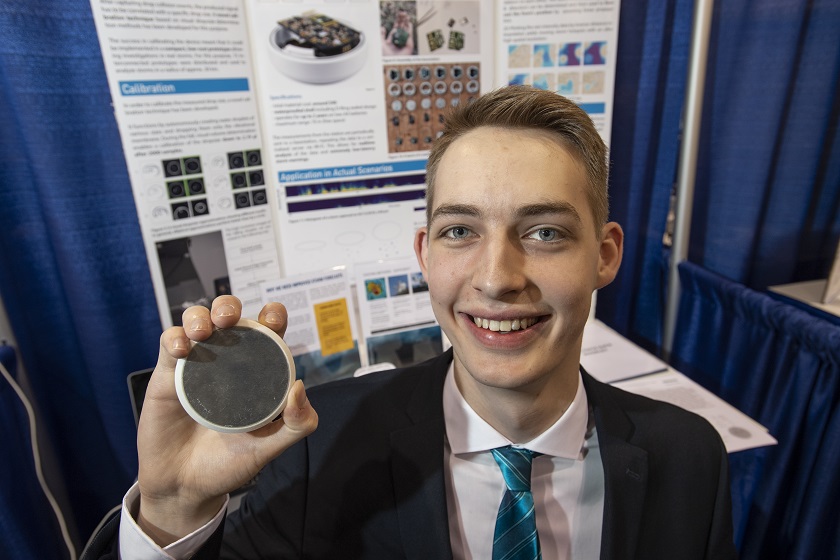
This post is part of a series profiling the top 22 Best of Category award winners of the Intel International Science and Engineering Fair (ISEF) 2019. Intel ISEF is the largest pre-college, international STEM competition in the world. This year’s competition included participants from 80 countries, regions and territories. Every year, the brightest young scientists from all over the world come together to participate in this incredible fair.
In this year’s competition, one of the top winners in the category of embedded systems, Max von Wolff of Rhineland-Palatinate, Germany, developed a new technique to measure the onset and progression of short-term storms. Max’s instrument does this by various means, including by the measure of individual sizes of water droplets.
Here is our conversation with Max.
What was your experience like at Intel ISEF?
My initial impression when I looked at the displays was: “How on earth will I be able to compete against all of these incredible projects?” However, as I met the bright minds behind them, I didn’t see them as rivals anymore, instead as fellows with whom I would be able to shape humanity’s future.
The fact that almost everyone I met came from a different part of the world, with diverse cultures and aspirations, really sparked my interest in connecting with them at the competition and collaborating with them in the future.
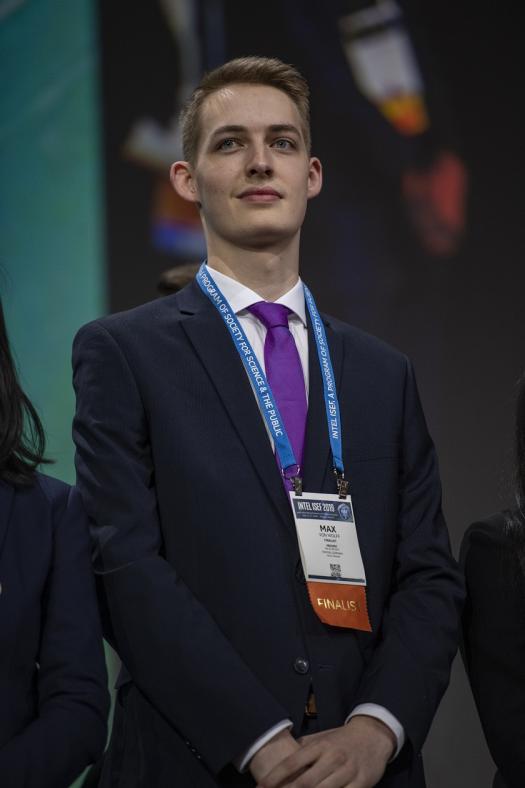
What’s the biggest lesson you’ve learned thus far in your scientific career?
Do not be afraid to experiment! The worst thing that could happen is that you will be wiser than before. The path leading to my solution for improving short-term storm forecasting is an aggregation of scrapping months of work, overcoming challenging problems and learning from numerous failures.
How do you deal with setbacks?
Setbacks generate the momentum driving me forward. At first, this might seem counterintuitive, but the moment I realize that failure is nothing more than valuable feedback, I get a sense of how to succeed.
What is something that people aren’t worried about that they should be more worried about?
Climate change. Whether or not it is actually ongoing at the moment might be hard to say, but we should certainly be taking measures against it whenever we can. Although my research might help to improve severe storm warnings, it is merely tackling a symptom. A sound solution for defeating the root of climate change is yet to be found.
How do you unwind when you’re not doing research?
Being able to take a step back from my research keeps me from procrastinating. When I am narrowing down on a single path, I know that I am prone to getting stuck. Instead, I always attempt to be open-minded and maintain an overview of what is out there. For me, meeting up with friends, reading books or taking our dog out for a walk often unlocks intriguing ideas.
